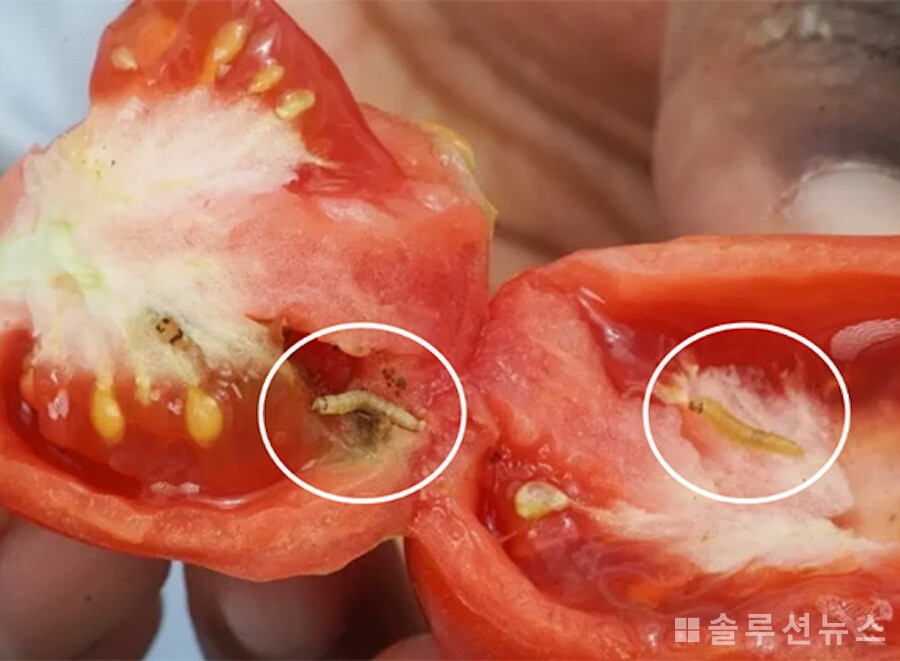The Rural Development Administration has begun on-site inspections to strengthen control over fruit tree fire blight and tomato moth.
On the 14th, Kwon Jae-han, the head of the Rural Development Administration, visited a pear orchard and a tomato farm in Cheonan, Chungcheongnam-do to inspect the current state of pest control. This visit is a practical measure aimed at implementing timely control during the flowering season and curbing the spread of pests.
At the pear orchard in Cheonan, they received reports on the monitoring and control status of the fire blight and observed demonstrations of pesticide application. The key timing for control is around the flowering season, and it is effective to apply pesticides more than twice according to predictive systems and the guidance of rural development agencies.
Kwon emphasized, “Control during the flowering season should be performed at least twice, and practical site actions such as following preventive measures and keeping farm records are important.”

At the tomato farm, the control situation for the tomato moth was checked. Tomato moth larvae hatch from eggs and damage fruit and stems. If not controlled early, the density of larvae rapidly increases, leading to widespread damage.
The Rural Development Administration recommends comprehensive control using insect nets, sticky traps, and mating disruption agents. Nationwide, tomato farms are being supplied with control materials since March, and local agricultural technology centers are checking on education and implementation status.
Kwon stated, “Eco-friendly farms should respond using mating disruption agents or plant extracts, while general farms should apply pesticides immediately upon discovering larvae to minimize damage.”
The Rural Development Administration is also distributing management guidelines based on overseas control cases and eco-friendly trial results. The field-focused control measures to prevent the spread of pests and diseases in the spring are becoming fully operational.